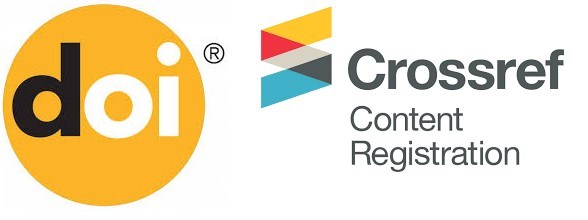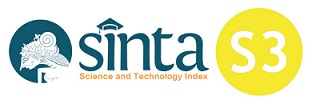Pembelajaran Bahasa Arab di Indonesia: Penelitian Terhadap Motivasi Belajar Bahasa Asing
DOI:
https://doi.org/10.32699/liar.v5i1.1665Kata Kunci:
Language Learning, Variety of Language, Motivation, ArabicAbstrak
Islam tidak hanya dianut oleh orang-orang yang bisa menggunakan bahasa Arab, tetapi bahasa Arab diyakini penting untuk mempelajari islam. Di antara Negara-negara yang tidak menggunakan bahasa Arab, Indonesia adalah negara muslim terbesar di dunia. Sejalan dengan fenomena ini, banyak muslim Indonesia yang mempelajari bahasa Arab di sekolah, pondok pesantren, dan universitas. Belajar bahasa Arab menghadirkan peluang dan tantangan, seperti meningkatnya keragaman bahasa di Indonesia dan menjadi tugas bagi institusi pendidikan untuk merancang pembelajaran bahasa Arab yang sesuai dengan minat dan aspirasi pelajar bahasa Arab dan memberikan fasilitas untuk membantu kemajuan belajar yang berkelanjutan. Untuk mencapai tujuan pembelajaran tersebut, perlu diketahui motivasi siswa untuk mempelajari bahasa Arab dan sejauh mana tingkat berbahasa yang mereka inginkan, sehingga mereka dapat mengatur strategi mandiri untuk meningkatkan pembelajaran mereka. Artikel ini melaporkan sebuah penelitian tentang motivasi pelajar yang belajar bahasa Arab di lembaga kursus Bahasa Arab di Kediri Jawa Timur Indonesia. Temuan penelitian mengungkapkan bahwa pelajar yang belajar bahasa Arab di lembaga kursus Bahasa Arab di Kediri Jawa Timur memiliki motivasi yang berbeda untuk mempelajari bahasa Arab. Penelitian ini memberikan informasi penting tentang motivasi siswa Indonesia untuk mempelajari bahasa asing.
Referensi
Brehm, J.W., Brehm, S.S., 1981. Psychological Reactance. Wiley, New York.
Calafato, R. 2020. Learning Arabic in Scandinavia Motivation, Metacognition, and Autonomy. Lingua, 246, 1-12.
Calafato, R., Tang F. 2019a. The Status of Arabic, Superdiversity, and Language Learning Motivation among Non-Arab Expats in The Gulf. Lingua, 219, 24-38.
Calafato, R., Tang F. 2019b. Multilingualism and Gender in The UAE : A Look at The Motivational Selves of Emirati Teenagers. System, 84, 133-144.
Coyle, D. 2011. In: ITALIC Research Report Investigating Sudent Gains: Content and Languages Integrated Learning. University of Aberdeen, Aberdeen.
Direktorat Pendidikan Diniyah dan Pondok Pesantren. 2020. Ditpdpontren.kemenag.go.id/web/
Dörnyei, Z. 2020. Innovations and Challenges in Language Learning Motivation. Routledge, London.
Dörnyei, Z., 2020. Innovations and Challenges in Language Learning Motivation. Routledge, London.
Dörnyei, Z., Taguchi, T. 2009. Questionnaires in Second Language Research: Construction, Administration, and Processing, 2nd ed. Routledge, New York.
Dörnyei, Z., Taguchi, T. 2009. Questionnaires in Second Language Research: Construction, Administration, and Processing, 2nd ed. Routledge, New York.
Du, X., Zhao, K., Ruan, Y., Wang, L., Duan, X. 2017. Beginner CFL Learners’ Perceptions Of Language Difficulty In A Task-Based Teaching And Learning (TBTL) Environment In Denmark. System 69, 108-120.
Kong, J.H., Han, J.E., Kim, S., Park, H., Kim, Y.S., Park, H. 2018. L2 Motivational Self System, International Posture and Competitiveness Of Korean CTL And LCTL College Learners: A Structural Equation Modeling Approach. System 72, 178-189.
Lanvers, U. 2016. Lots of Selves, Some Rebellious: Developing The Self Discrepancy Model for Language Learners. System 60, 79-92.
Laurin, K., Kay, A.C., Proudfoot, D., Fitzsimons, G.J. 2013. Response to Restrictive Policies: Reconciling System Justification and Psychological Reactance. Organ. Behav. Hum. Decis. Process. 122 (2), 152-162.
Laurin, K., Kay, A.C., Proudfoot, D., Fitzsimons, G.J. 2013. Response To Restrictive Policies: Reconciling System Justification And Psychological Reactance. Organ. Behav. Hum. Decis. Process. 122 (2), 152-162.
Moskovsky, C., Assulaimani, T., Racheva, S., Harkins, J. 2016. The L2 Motivational Self System and L2 Achievement: A Study Of Saudi EFL Learners. Mod. Lang. J. 100 (3), 641-654.
Nakamura, T. 2019. Understanding Motivation for Learning Languages Other than English: Life Domains of L2 Self. System 82, 111-121.
Oakes, L., Howard, M. 2019. Learning French as a Foreign Language in a Globalised World: an Empirical Critique of the L2 Motivational Self System. Int. J. Bilingual Educ. Bilingualism 1-17.
Papi, M., Abdollahzadeh, E. 2012. Teacher Motivational Practice, Student Motivation, and Possible L2 Selves: An Examination In The Iranian EFL Context. Lang. Learn. 62 (2), 571-594.
Ryan, S., Dörnyei, Z. 2013. The Long-term Evoluation of Language Motivation and The L2 Self. In: Berndt, A. (Ed). Fremdsprachen in der Perspektive Lebenslangen Lernens. Peter Lang. Frankfurt, pp. 89-100.
Sheorey, R., Mokhtari, K. 2001. Differences In The Metacognitive Awareness Of Reading Strategies Among Native And Non-Native Readers. System 29 (4), 431-449.
Siridetkoon, O., Dewaele, JM, 2018. Ideal Self and Ought-to Self of Simultaneous Learners of Multiple Foreign Languasges. Int. J Multilingualism, 15 (4), 313-328.
Spratt, M., Humphreys, G., Chan, V. 2002. Autonomy And Motivation: Which Comes First? Lang. Teach. Res. 6 (3), 245-266. SU, 2020.
Thompson, A.S., Vásquez, C. 2015. Exploring Motivational Profiles Through Language Learning Narratives. Mod. Lang. J. 99 (1), 158-174.
Ushioda, E. 2014. Motivation, Autonomy and Metacognition. In: Lasagabaster, D., Doiz, A., Sierra, JM (Eds.). Motivation and Foreign Language Learning: from Theory to Practice. John Benjamins, Amsterdam, pp. 31-49.
Ushioda, E. 2020. Research L2 Moivation: Re-evaluating the Role of Qualitative Inquiry, or the Wine ad Conversation Approach. In: Al Hoorie, AH., Macintyre, P. (Eds.). Contemporary Language Motivation Theory: 60 Years Since Gardner and Lambert. Multilingual Matters, Bristol, UK. pp. 194-211.
Vandergrift, L., 2005. Relationships Among Motivation Orientations, Metacognitive Awareness And Proficiency In L2 Listening. Appl. Linguist. 26 (1), 70-89
Wright, WE., Boun, S., Garcia, O. 2015. The Handbook of Bilingual and Multilingual Education. Wiley Blackwell.
Zimmerman, B.J., 1986. Development of Self Regulated Learning. Contemp. Educ. Psychol. 16, 307-313.
Unduhan
Diterbitkan
Terbitan
Bagian
Lisensi
Authors who publish with this journal agree to the following terms:
a. Authors retain copyright and grant the journal right of first publication with the work simultaneously licensed under a Creative Commons Attribution-ShareAlike 4.0 International License. that allows others to share the work with an acknowledgement of the work's authorship and initial publication in this journal.
b. Authors are able to enter into separate, additional contractual arrangements for the non-exclusive distribution of the journal's published version of the work (e.g., post it to an institutional repository or publish it in a book), with an acknowledgement of its initial publication in this journal.
c. Authors are permitted and encouraged to post their work online (e.g., in institutional repositories or on their website) prior to and during the submission process, as it can lead to productive exchanges, as well as earlier and greater citation of published work (See The Effect of Open Access).












